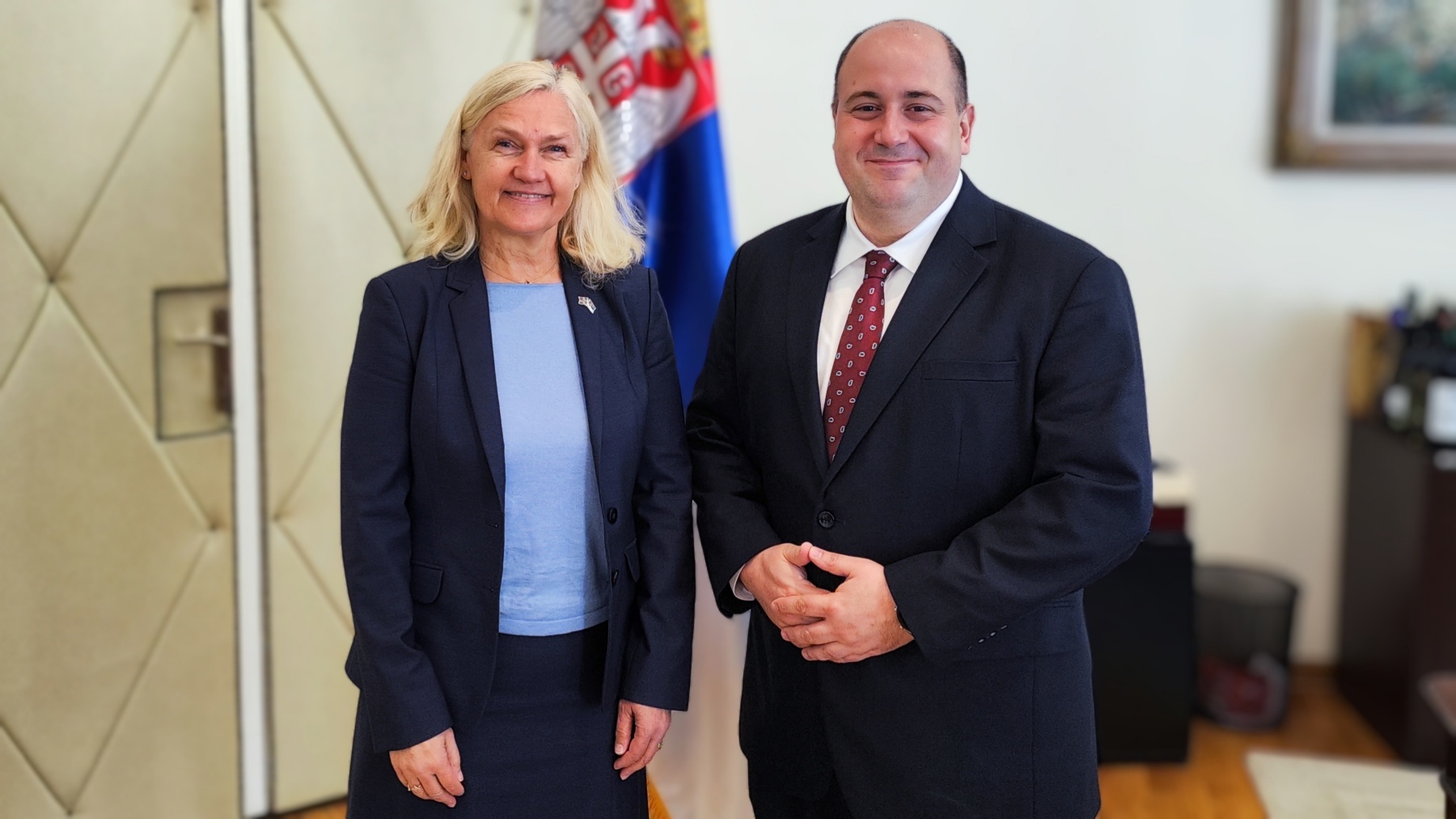Norway’s support to Serbia on its European path
During the meeting, it was emphasized that bilateral relations are good, underpinned by the two nations' shared legacy of anti-fascist struggle. It was noted that there is potential for further enhancing ties, particularly in the fields of economy, innovation, and cultural exchange.
Secretary General Kozarev expressed gratitude to Ambassador Melsom for Norway’s support in implementing reforms and advancing Serbia’s European integration. He also highlighted the importance of joint efforts in the area of green energy, citing the "Smart and Green Cities 2025" project, which the Norwegian Embassy is implementing together with the embassies of Denmark, Sweden, and Finland, and in cooperation with partner cities in Serbia, with the support of the Nordic Council of Ministers.
Referring to current developments in Serbia, Kozarev pointed to the specific processes following the tragedy in Novi Sad, describing them as an attempted color revolution aimed at causing destabilization and division within society, which has significantly impacted Serbia’s economic stability. He added that Serbia would continue its efforts to ensure the security and stability of society and further progress, while preserving peace and stability both domestically and regionally, despite the challenges it faces.
The Secretary General also briefed the ambassador on the situation in the southern province, reiterating that Serbia remains committed to dialogue, which it views as the key instrument for reaching a sustainable solution. He stressed that the Serbian and non-Albanian population has been exposed to violence and discrimination for too long, warning of the serious proportion of the population that has left Kosovo and Metohija since Albin Kurti assumed leadership of the provisional self-government institutions in Pristina.
The meeting confirmed the shared commitment to further strengthening the partnership, with a view to creating new opportunities for Norwegian investment in Serbia and fostering deeper overall engagement. It was assessed that there is room for cooperation between the two foreign ministries, particularly in the area of academic exchange and staff training.




